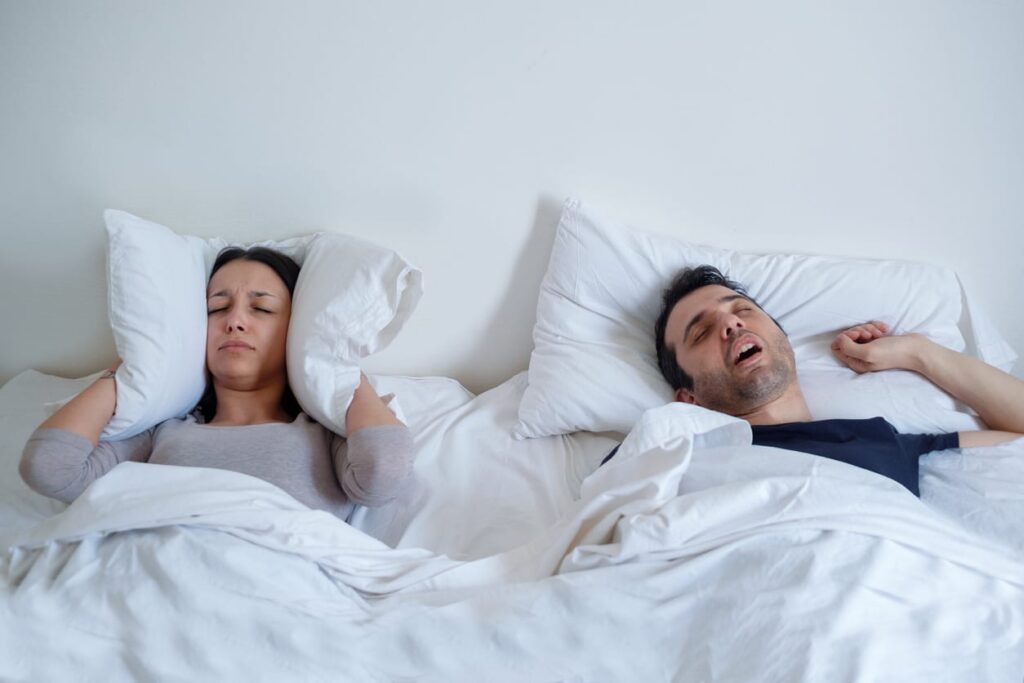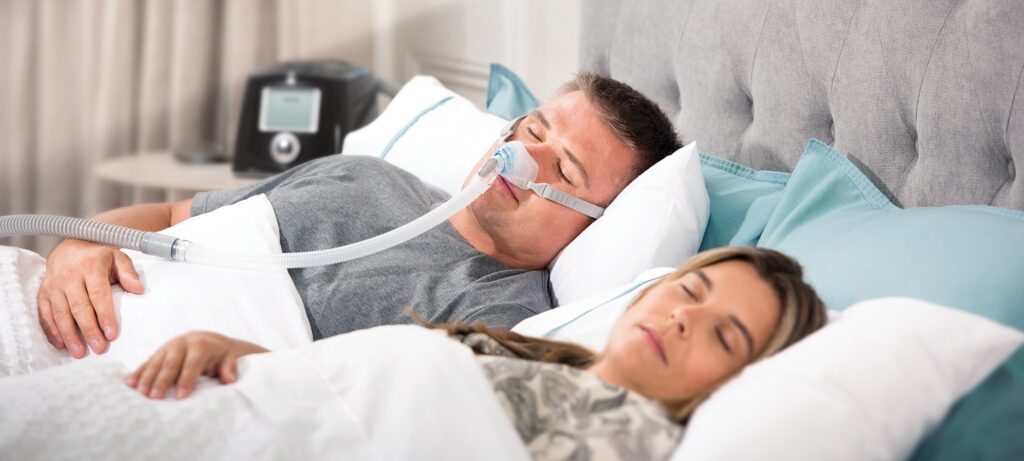Reduce the risk factors that are within your control to reduce your chance of getting sleep apnea. Some of the actions you can do are listed below:
- Discuss with your doctor how you might attempt to reduce your risk factors or identify apnea early. Do you have a history of sleep apnea in your family? Do you suffer from a sleep apnea diagnosis-related medical problem, such as diabetes, heart disease, or hypertension? Do you need weight loss? Do you often snore during night? With your doctor, go through preventative measures you may take to reduce your chance of developing sleep apnea and ensure that you catch it early.
- Consume a balanced diet. Pick heart-healthy foods, such as a range of fruits and vegetables. This may help you maintain a healthy weight and enhance your general health in addition to lowering your chance of sleep apnea.
- Regular exercise. Even if you’re overweight or obese, being active may lower your chance for sleep apnea. Recent research from Massachusetts General Hospital found that regular exercise decreased the risk of obstructive sleep apnea by 10 to 31 percent regardless of participants’ body mass index. The study was published in the European Respiratory Journal in 2021 and followed 137,917 midlife and older adults for up to 18 years (BMI, a measure of weight compared with height).
- Exercise may be beneficial by lowering fluid accumulation in the lower legs during the day, which might cause the fluid to rise in the body at night when individuals are laying down. It may also lower the risk of apnea by lowering insulin resistance.
- Stop using tobacco. Smoking raises your chance of developing sleep apnea as well as a variety of other conditions and diseases, including as cancer and cardiovascular disease.
- Avoid sleeping pills and depressants. Reduce your alcohol intake and stay away from drugs like sedatives and opioids that relax your muscles and block signals from your central nervous system. According to the American Academy of Family Physicians, refrain from using sleep aids for the same reasons.

Don’t sleep on your back.
To reduce the likelihood that your tongue and soft palate may collapse into your airway and obstruct the passage of oxygen, try sleeping on your side (with appropriate pillows if required).
Sleep apnea is really another word for snoring, right?
In no way. Snoring is that irritating sound that develops while you sleep when air flows through relaxed tissues in your throat. A person with sleep apnea has frequent starts and pauses in their breathing while they are asleep.
Although not everyone who snores has sleep apnea, many people with the condition do snore often and loudly. Men are more likely than women to get sleep apnea, which affects one in five individuals.
Obstructive sleep apnea (OSA), the most prevalent kind, occurs when excess weight on the upper chest and neck blocks the airway. Central sleep apnea (CSA), a less frequent kind, occurs when the brain fails to regularly transmit signals to the diaphragm to contract and expand. Brain stem stroke and CSA have been linked.
Why does this matter so much?
Because weight overwhelms the muscles that keep the upper airway open during sleep, it becomes challenging for patients with OSA to maintain it open. There is a delay in breathing every time the airway shuts while you sleep; this may happen five to thirty times an hour or more, and it might cause you to wake up unexpectedly gasping for air.
When the air supply is cut off, the body produces stress hormones, which over time may cause high blood pressure, stroke, and heart disease—the #1 killer in the US. Additionally, it may raise the risk of metabolic syndrome, liver issues, and type 2 diabetes.
Experts think it may be a part of a vicious cycle in which the lack of sleep it causes might create greater obesity, which in turn can make the problem worse. It is also linked to obesity.
Who is at risk?
Overweight people are particularly susceptible to OSA because fat deposits in the upper airway might eventually cause the muscles there to lose tone, obstructing breathing. The same goes for those who have larger necks, narrower throats, or bigger tonsils or adenoids.
Sleep apnea affects older persons far more often than younger ones, and it is more common in males than in women. Additionally, those who smoke, drink, or have a history of sleep apnea may be at higher risk.

What signals are there?
Other than loud snoring and abruptly stopping breathing or gasping for oxygen while you sleep (which is clearly witnessed by someone else), symptoms may resemble those of any sleep disorder:
- Dry mouth upon awakening
- Morning headaches
- Trouble falling asleep or being too sleepy
- Irritability or difficulty concentrating when awake
How can I be certain?
Your doctor can assess your symptoms, but a sleep expert may be required to do tests, such as nocturnal breathing monitoring, in order to diagnose your illness and establish its severity.
Your doctor can keep an eye on your heart, lungs, brain, and other movements as you sleep with a test called polysomnography. This research aids in the exclusion of other sleep disorders such narcolepsy and restless legs syndrome.
What is done about it?
Your doctor can suggest tools, therapies, or even surgery to help open the airway in moderate to severe instances.
Continuous positive airway pressure (CPAP), in which a machine distributes constant air pressure via a mask into the nose or mouth, as well as mouthpieces designed to keep the throat open, are common treatments.
Your doctor may recommend lifestyle adjustments if you have a mild case and are having trouble falling asleep or staying asleep, such as:
- Engage in regular physical exercise but avoid doing so immediately before bed since this may cause your adrenaline to spike and keep you awake.
- Limit your daily alcohol intake to one drink for women and two for men; drinking too much alcohol makes it difficult to fall asleep.
- Steer clear of caffeine before bed.
- Establish a pre-bedtime ritual, such as a warm bath, dimmer lighting, or herbal tea.